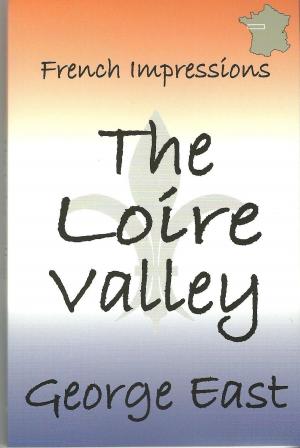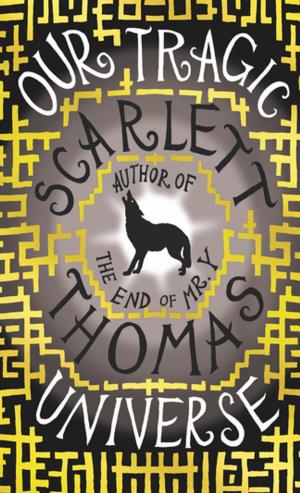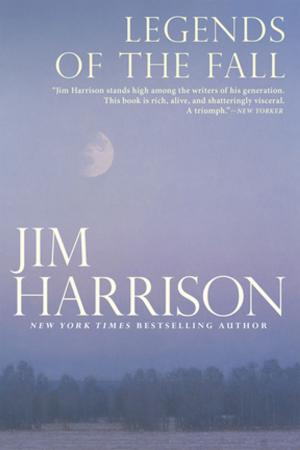Modern Shorts
18 Short Stories From Fiction Attic Press
Fiction & Literature, Anthologies, Short Stories, Literary| Author: | Michelle Richmond, Editor | ISBN: | 9780991149957 |
| Publisher: | Fiction Attic Press | Publication: | September 10, 2014 |
| Imprint: | Language: | English |
| Author: | Michelle Richmond, Editor |
| ISBN: | 9780991149957 |
| Publisher: | Fiction Attic Press |
| Publication: | September 10, 2014 |
| Imprint: | |
| Language: | English |
Modern Shorts: 18 Short Stories From Fiction Attic Press, features the winners of the Fiction Attic Press Short Fiction Contest. This anthology includes new fiction by Neil Mathison, Jane St. Claire, Timothy Boudreau, Linda Boroff, D.R.D. Bruton, Darlene Campos, Christopher David DiCicco, J.S. Kierland, Jen Knox, Claire E. Lombardo, John P. Loonam, Jennifer Marquardt, Jackie Davis Martin, Mark Pritchard, Suzanne Samples, JLSchneider, Thom Schwarz, and Owen Thomas, edited and with a foreword by Michelle Richmond.
In Neil Mathison’s “The Cannery," an outdoorsman in Alaska becomes the platonic companion of a young movie star, a woman who has briefly escaped the confines of Hollywood to read scripts in the far North. In “When You’re Flying High, You’d Better Not Look Down,” the narrator takes a trip on Route 66 in the wrong direction, channeling Thelma and Louise, albeit quite a bit more irreverently than even Susan Sarandon and Gina Davis managed to do. In Linda Boroff’s “Home Like a Shadow,” a college student accompanies her well-spoken and well-adjusted boyfriend on a trip to his derelict hometown, where she encounters the ugly reality of his alcoholic family. Amid this turmoil, she is forced to consider the implications of her boyfriend’s history even as she contemplates forming a future with him.
Timothy Boudreau exposes the underbelly of small-town life in “The Charm,” a quietly hopeful story written from the point of view of an elementary school teacher who watches her students grow up and sometimes thrive despite the very public failings and humiliations of their parents.
The struggle between belief and science is explored with grace and insight in “Godforsaken Stone Gilbert,” D.R.D. Bruton’s heartbraking tale of a bookishly inclined working man who is faced with the realization that he may never see his dead daughter in the afterlife, for there may be no afterlife. “Indian Classroom,” by Darlene P. Campos, is a love story set at the Flandreau Indian Boarding School at a time in the not-too-distant past. At the center of the story is James Eagle, a teenaged Lakota boy who is determined to do two things: win the girl of his dreams and get back home to his family.
“The Red Ball,” J.S. Kierland’s story of two women who meet in New York City decades after they stood on opposite sides of a barbed wire fence at a concentration camp, ponders whether forgiveness is possible, and examines how far one will go to rewrite one’s own history.
Christopher David DiCicco’s “Beer of the Month” is an epistolary tale that begins with beer and ends, as all good stories do, in an entirely unexpected place. Here, the author explores our desire to be a part of something.
Family is the subject of “The Chef,” by Jen Knox, “The Neighbors,” by Claire E. Lombardo, “Running,” by John P. Loonam, and “It’ll Be All Right,” by Jackie Davis Martin. In “The Chef,” two young siblings bond over their father’s absence, making their own precarious way in the world, until the brother leaves for California and the narrator must adjust to her new, limited role in his life. In “The Neighbors,” a 13-year-old girl becomes the silent bearer of all of the neighborhood secrets while babysitting the children of families much wealthier than her own. Meanwhile, there are ominous signs that her parents’ once-passionate marriage may be failing, their fragile finances crumbling. “Running” begins with a car crash and ends with a quiet but effective act of revenge. In “It’ll Be All Right,” Jackie Davis Martin focuses with precision on the distance between a woman and her adult daughter, both of whom are locked in private struggles they choose not to share with one another.
“Little Big Death,” by Mark Pritchard, is the chilling dystopian tale of a man who, faced with the prospect of living out the rest of his days in a world in chaos, chooses to end his life in an orgiastic party, courtesy of the drug Superdeath—only to discover that the government’s program to provide citizens with an easy way out is not foolproof.
Suzanne Samples turns her attention to suicide as well in “Chekhov’s Toothbrush,” in which a woman who doesn’t quite have her act together discovers a suicide note written by her well-adjusted, better-looking younger sister. The story’s deliberately abrupt end leaves the reader as unsettled as the narrator, as the truth of the sister’s intentions takes on a haunting new possiblity.
Danger is never far away in these fictions. In “Slivers of Smoke,” by JLSchneider, the Beamstrous family’s seemingly innocuous camping trip is revealed to be the product of ulterior motives. In “The Hand,” by Thom Shwarz, a man who has been a failure as a husband watches as his wife of many years is swept away in a flood. Here, we feel the force of the water and the terror of the flood’s aftermath as intensely as we feel the cold in “The Cannery.”
The anthology ends with the story of a man who has spent a great many years lying to himself finally looking both inward and outward, into the impossibly vast heavens, at the stars whose stories were written long before they reached us. Owen Thomas reminds us in “Everything Stops” that, at some point, we must “take a good look at the past.”
A diverse collection of thought-provoking, beautifully written stories by accomplished writers whose work, by and large, has not yet gained a wide audience. Recommended for writers of short fiction and anyone who loves a good story.
Modern Shorts: 18 Short Stories From Fiction Attic Press, features the winners of the Fiction Attic Press Short Fiction Contest. This anthology includes new fiction by Neil Mathison, Jane St. Claire, Timothy Boudreau, Linda Boroff, D.R.D. Bruton, Darlene Campos, Christopher David DiCicco, J.S. Kierland, Jen Knox, Claire E. Lombardo, John P. Loonam, Jennifer Marquardt, Jackie Davis Martin, Mark Pritchard, Suzanne Samples, JLSchneider, Thom Schwarz, and Owen Thomas, edited and with a foreword by Michelle Richmond.
In Neil Mathison’s “The Cannery," an outdoorsman in Alaska becomes the platonic companion of a young movie star, a woman who has briefly escaped the confines of Hollywood to read scripts in the far North. In “When You’re Flying High, You’d Better Not Look Down,” the narrator takes a trip on Route 66 in the wrong direction, channeling Thelma and Louise, albeit quite a bit more irreverently than even Susan Sarandon and Gina Davis managed to do. In Linda Boroff’s “Home Like a Shadow,” a college student accompanies her well-spoken and well-adjusted boyfriend on a trip to his derelict hometown, where she encounters the ugly reality of his alcoholic family. Amid this turmoil, she is forced to consider the implications of her boyfriend’s history even as she contemplates forming a future with him.
Timothy Boudreau exposes the underbelly of small-town life in “The Charm,” a quietly hopeful story written from the point of view of an elementary school teacher who watches her students grow up and sometimes thrive despite the very public failings and humiliations of their parents.
The struggle between belief and science is explored with grace and insight in “Godforsaken Stone Gilbert,” D.R.D. Bruton’s heartbraking tale of a bookishly inclined working man who is faced with the realization that he may never see his dead daughter in the afterlife, for there may be no afterlife. “Indian Classroom,” by Darlene P. Campos, is a love story set at the Flandreau Indian Boarding School at a time in the not-too-distant past. At the center of the story is James Eagle, a teenaged Lakota boy who is determined to do two things: win the girl of his dreams and get back home to his family.
“The Red Ball,” J.S. Kierland’s story of two women who meet in New York City decades after they stood on opposite sides of a barbed wire fence at a concentration camp, ponders whether forgiveness is possible, and examines how far one will go to rewrite one’s own history.
Christopher David DiCicco’s “Beer of the Month” is an epistolary tale that begins with beer and ends, as all good stories do, in an entirely unexpected place. Here, the author explores our desire to be a part of something.
Family is the subject of “The Chef,” by Jen Knox, “The Neighbors,” by Claire E. Lombardo, “Running,” by John P. Loonam, and “It’ll Be All Right,” by Jackie Davis Martin. In “The Chef,” two young siblings bond over their father’s absence, making their own precarious way in the world, until the brother leaves for California and the narrator must adjust to her new, limited role in his life. In “The Neighbors,” a 13-year-old girl becomes the silent bearer of all of the neighborhood secrets while babysitting the children of families much wealthier than her own. Meanwhile, there are ominous signs that her parents’ once-passionate marriage may be failing, their fragile finances crumbling. “Running” begins with a car crash and ends with a quiet but effective act of revenge. In “It’ll Be All Right,” Jackie Davis Martin focuses with precision on the distance between a woman and her adult daughter, both of whom are locked in private struggles they choose not to share with one another.
“Little Big Death,” by Mark Pritchard, is the chilling dystopian tale of a man who, faced with the prospect of living out the rest of his days in a world in chaos, chooses to end his life in an orgiastic party, courtesy of the drug Superdeath—only to discover that the government’s program to provide citizens with an easy way out is not foolproof.
Suzanne Samples turns her attention to suicide as well in “Chekhov’s Toothbrush,” in which a woman who doesn’t quite have her act together discovers a suicide note written by her well-adjusted, better-looking younger sister. The story’s deliberately abrupt end leaves the reader as unsettled as the narrator, as the truth of the sister’s intentions takes on a haunting new possiblity.
Danger is never far away in these fictions. In “Slivers of Smoke,” by JLSchneider, the Beamstrous family’s seemingly innocuous camping trip is revealed to be the product of ulterior motives. In “The Hand,” by Thom Shwarz, a man who has been a failure as a husband watches as his wife of many years is swept away in a flood. Here, we feel the force of the water and the terror of the flood’s aftermath as intensely as we feel the cold in “The Cannery.”
The anthology ends with the story of a man who has spent a great many years lying to himself finally looking both inward and outward, into the impossibly vast heavens, at the stars whose stories were written long before they reached us. Owen Thomas reminds us in “Everything Stops” that, at some point, we must “take a good look at the past.”
A diverse collection of thought-provoking, beautifully written stories by accomplished writers whose work, by and large, has not yet gained a wide audience. Recommended for writers of short fiction and anyone who loves a good story.















